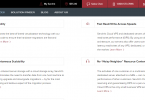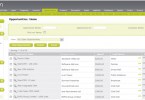The implementation of the General Data Protection Regulation (GDPR) has compelled businesses to transform their approaches to collecting, storing, and processing personal data. Compliance with GDPR’s stringent standards has become a paramount responsibility for organizations operating within the European Union (EU) and worldwide.
This article delves into the crucial role of archiving in meeting GDPR requirements and explores its potential to enhance marketing efforts and overall corporate strategy.
Photo by Element5 Digital
GDPR Compliance: What You Need to Know
Understanding the foundations of GDPR is crucial for businesses striving to achieve compliance. The General Data Protection Regulation sets stringent rules for collecting, storing, and transferring personal data, with a strong emphasis on obtaining informed consent, ensuring data accuracy, and respecting individuals’ rights. Non-compliance with GDPR can result in significant penalties and reputational harm.
Archiving plays a vital role in meeting GDPR requirements by securely storing consent records, facilitating data accuracy and updates, and enabling businesses to effectively respond to data subject requests. By implementing robust cloud archiving solutions, businesses can minimize risks, demonstrate their commitment to compliance, and maintain the integrity and security of personal data.
Moreover, archiving provides a centralized and structured approach to data management, allowing organizations to efficiently organize and retrieve information when needed. It empowers businesses to establish and enforce data retention policies aligned with GDPR, ensuring that personal data is not retained for longer than necessary. This streamlined approach not only helps organizations meet legal obligations but also enhances data security and minimizes the potential for data breaches.
By effectively leveraging archiving solutions, businesses can not only achieve GDPR compliance but also gain a competitive advantage by building trust with customers, protecting their reputation, and positioning themselves as responsible custodians of personal data.
A Crucial Part of GDPR Compliance Is Archiving
The importance of archiving in satisfying GDPR’s strict criteria cannot be overstated. Businesses can safely retain and manage personal data in a regulated manner by deploying sophisticated archiving systems.
For compliance or legal reasons, it may be necessary to retrieve old records, and this is where archiving comes in handy. It’s also useful for proving responsibility and showing proof of GDPR compliance through audit trails.
Features like indexing, information tagging, and sophisticated search capabilities are commonplace in archiving solutions. This facilitates faster responses to data subject requests and regulatory inquiries, as well as overall organizational efficiency.
Organizations can meet the General Data Protection Regulation’s (GDPR) standards for data accuracy and integrity by centralizing and standardizing their archival data.
Effective Data Storage and Management
Businesses can create data management and retention strategies that comply with GDPR with the help of efficient archiving. To avoid keeping sensitive information for too long, businesses can establish and strictly adhere to data retention policies.
Archiving solutions reduce the likelihood of noncompliance and data breaches by automating the retention process. It facilitates streamlined data governance processes and guarantees that private information is retained for no longer than necessary in an organization.
Configurable retention policies are a common feature of archiving solutions, letting businesses retain data for as long as necessary to meet regulatory, contractual, or corporate needs.
Businesses can lessen the dangers associated with holding superfluous personal information by deleting or anonymizing it once it has outlived its retention period.
Improved Data Security and Protection
GDPR compliance relies heavily on data security. To prevent data breaches and illegal access, archiving solutions use sophisticated security mechanisms including encryption and access controls.
Archival data encryption helps firms ensure that critical information is kept safe from prying eyes. Data breaches and tampering are prevented through access restrictions that limit access to archived information to authorized individuals only.
Data deduplication and tamper-evident storage are only two of the technologies available in archiving solutions that boost data safety. In order to lessen the need for storage and the likelihood of a data leak, data deduplication is used. Archival data is protected from modification with tamper-evident storage, which also gives proof of any efforts to alter the data without permission.
Marketing Efforts, Simplified
Businesses can improve the efficiency of their advertising campaigns by utilizing the information gleaned from their archives. Companies may learn a lot about client preferences, habits, and trends by looking at historical data. Marketers can use this data to improve customer engagement and campaign efficacy through more targeted and specific efforts.
By storing client information in an archive, businesses can easily access it and use it to learn from the past and improve their marketing strategy.
Businesses may make the most of their stored data by combining archiving solutions with CRM systems and marketing automation platforms. Marketers are given the ability to construct highly customized and targeted ads because of this integration’s streamlined access to consumer profiles, purchase history, and engagement data. Customers are more satisfied and conversion rates are increased when insights are drawn from historical data, which guarantees that marketing efforts are driven by accurate and complete consumer information.
Business Strategy and Competitive Advantage
The General Data Protection Regulation (GDPR) gives an opportunity for organizations to acquire a competitive edge through the adoption of lawful and ethical data practices. Archiving solutions that meet GDPR standards help businesses earn clients’ trust, boost their standing in the industry, and set themselves apart from rivals.
GDPR compliance, which can be demonstrated through efficient archiving, can become a selling point, drawing in clients and partners who value privacy. It demonstrates that the company values its customers’ privacy and can be trusted with their information.
In addition to helping with GDPR compliance, archiving systems also provide other advantages. Organizations can use data for strategic decision-making and business intelligence if they can store and handle huge amounts of data effectively. Market trends, client preferences, and space for innovation can all be uncovered through the examination of historical data.
This knowledge may be used to improve products, reach new customers, and expand the company as a whole, giving it a leg up on the competition.
Wrapping up
With stricter data protection laws and rising consumer privacy concerns, archiving is more important than ever for meeting the General Data Protection Regulation (GDPR) requirements. Strong archiving systems provide companies with safe data storage, easy administration, and streamlined advertising.
In addition, achieving GDPR compliance via efficient archiving can be a driver of business expansion, strengthening relationships with customers and giving an edge in today’s data-driven market.
When it comes to the General Data Protection Regulation (GDPR), embracing archiving as a core component is not just a legal need, but also a strategic move towards success in the current business world.






Leave a Comment